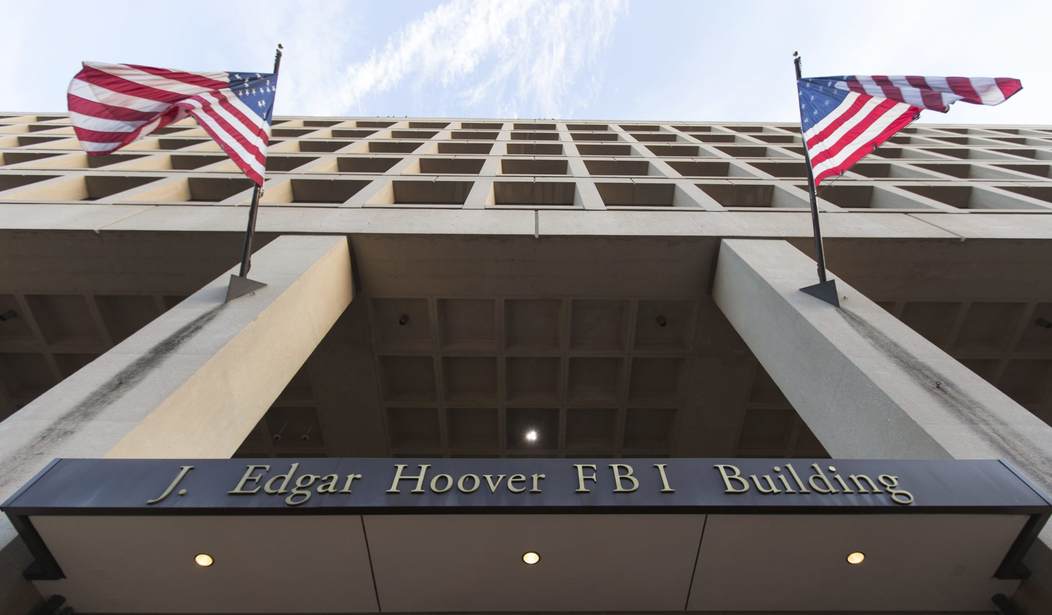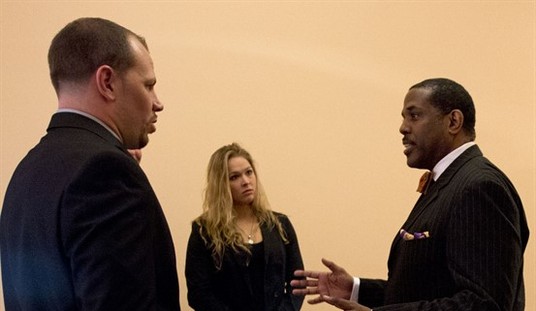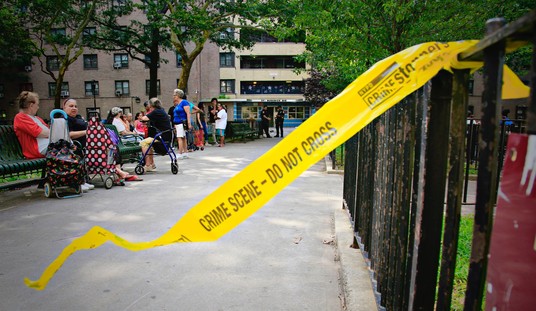Just hours before the Nunes memo on FBI surveillance pursuant to the Russian collusion investigation was released, former Attorney General and Obama stalwart Eric Holder warned it would damage American intelligence capabilities.
[P]eople must understand what is at stake by release of the bogus, contrived Nunes memo. It uses normally protected material and puts at risk our intell capabilities in order to derail a legitimate criminal investigation. This is unheard of- it is dangerous and it is irresponsible.
When the memo was actually released it superficially had nothing to do with cloak and dagger and much more to do with domestic politics. What it alleged was that “senior FBI officials used a fake dossier paid for by the Democrats to get a court order for electronic surveillance of the Trump campaign.” Rep. Paul Gosar, in fact, characterized the alleged actions as an attempted coup. “The House Permanent Select Committee on Intelligence memorandum on the FBI … is not just evidence of incompetence but clear and convincing evidence of treason.”
If any intelligence assets were compromised, they were placed at risk by the dossier itself. British court documents say that Fusion, an agency working for the Hillary campaign briefed journalists from the New York Times, Washington Post, Yahoo News, the New Yorker and CNN at the end of September 2016. Whether Fusion’s press conference tipped off the Russians is unclear even to Glenn Simpson as Newsweek reports.
The House Intelligence Committee published a transcript on Thursday of a behind-closed-doors interview with Glenn Simpson of Fusion GPS, who shared his concerns that people had been picked off by the Russian government after the explosive claims of a Trump-Russia connection emerged.
When asked if one of his sources was killed, Simpson said, “That’s not my information. I mean, there was a series of episodes where people were arrested or died mysteriously that came shortly after the disclosure of the existence of this information. And I do believe there was a bit of an old-fashioned purge.”
But a press briefing couldn’t have helped their sources’ operational security.
It should be hard for any American of whatever persuasion to exult in the FBI’s weakness on full display. A very important agency, on which the safety of the U.S. and the world significantly depends, has been shown at the very minimum to be vulnerable to bad judgment. Confirmation bias alters what is perceived as a threat. The FBI leadership arguably believed Steele because they wanted to believe him. Why the Fusion GPS dossier itself was not regarded as a deception operation when it’s a standard Russian ploy to plant their favored narrative in an organization is a question that ought to be asked and answered.
Bias is dangerous because the feds need to look in places even when they’re not sure they’ll find anything. They have to play hunches even when they suspect a tip was tainted. They even need to be allowed to make mistakes if, in the main, they get it right. But they must always be honest about the uncertainty in their investigation not only with the judge but most of all to themselves because that’s all that stands between human justice and abuse.
In the Wilderness of Mirrors where intelligence operates the facts are rarely certain. The truth is always colored by degrees of doubt, the need to protect sources, the necessity to deceive. No Memo can possibly declassify everything. The only guarantees in the intelligence business are the men themselves. Trusted men are the proxy for what the public cannot see; their judgment the substitute for what we can never know. Are they mentally honest, loyal, possessed of sound judgment?
And the answer to all those questions, apparently, is “who knows?” As David Goldman memorably put it, they’ve come off like a bunch of clowns. “No foreign intelligence service could learn anything from the House Republicans’ memo except that the FBI retailed the mercenary inventions of a retired British spook and concealed the provenance of its information. Some may consider it dangerous to expose senior officials of America’s counterintelligence service as political hacks and fools. They needn’t worry. America’s adversaries have been well aware of this for a long time.”
By contrast, the American public trusted them. Ironically, Eric Holder was right about the memorandum being damaging to U.S. intelligence capabilities — but not in the obvious way. The Nunes memo hurt the intelligence community not because it revealed any secret codes, hideouts or agent names. It damaged intel because it showed what fools they were.
The government pays telecoms to spy on you. The public lets them do it because they trust the government. A Wired article from a few years back noted that the “Obama administration accused Sprint today of overcharging the government more than $21 million in wiretapping expenses. Sprint, like all the nation’s carriers, must comply with the Communications Assistance in Law Enforcement Act of 1994, which requires telcos to be capable of providing government-ordered wiretapping services. The act also allows carriers to recoup “reasonable expenses” associated with those services. They do it because to defend against enemy threats they have to do stuff.
If the public stops trusting them — that’s the damage.
Follow Wretchard on Twitter
For a list of books most frequently purchased by readers, visit my homepage.
Support the Belmont Club by purchasing from Amazon through the links below.
Books:
The Road Not Taken: Edward Lansdale and the American Tragedy in Vietnam, In this book, bestselling historian Max Boot chronicles the life of legendary CIA operative Edward Lansdale and reframes our understanding of the Vietnam War. Lansdale pioneered a “hearts and minds” diplomacy, first in the Philippines, then in Vietnam, a visionary policy that was ultimately crushed by America’s giant military bureaucracy. With interviews and newly available documents, Boot rescues Lansdale from historical ignominy and suggests that Vietnam could have been different had we only listened.
The Case for Christ: A Journalist’s Personal Investigation of the Evidence for Jesus, Retracing his own spiritual journey from atheism to faith, author Lee Strobel, former legal editor of the Chicago Tribune, cross-examines a dozen experts who are recognized authorities in their own fields. He challenges them with questions like, How reliable is the New Testament? Does evidence for Jesus exist outside the Bible? Is there any reason to believe the resurrection was an actual event? The book reads like a captivating, fast-paced novel but it’s not fiction. It’s a riveting quest for the truth about history’s most compelling figure.
Ghost Soldiers: The Epic Account of World War II’s Greatest Rescue Mission, by Hampton Sides. On January 28, 1945, 121 hand-selected U.S. troops slipped behind enemy lines in the Philippines. Their mission: March 30 rugged miles to rescue 513 POWs languishing in a hellish camp, among them the last survivors of the infamous Bataan Death March. This book vividly re-creates this daring raid, offering a minute-by-minute narration that unfolds alongside intimate portraits of the prisoners and their lives in the camp.
The Square and the Tower: Networks and Power, from the Freemasons to Facebook, by Niall Ferguson. The 21st century has been hailed as the Networked Age. But in this book, Ferguson argues that social networks are nothing new. From the printers and preachers who made the Reformation to the freemasons who led the American Revolution, it was the networkers who disrupted the old order of popes and kings. Far from being novel, our era is the Second Networked Age, with the computer in the role of the printing press. Once we understand this, both the past and the future start to look very different indeed. Ferguson offers a whole new way of imagining the world.
For a list of books most frequently purchased by readers, visit my homepage.
Did you know that you can purchase some of these books and pamphlets by Richard Fernandez and share them with your friends? They will receive a link in their email and it will automatically give them access to a Kindle reader on their smartphone, computer or even as a web-readable document.
The War of the Words, Understanding the crisis of the early 21st century in terms of information corruption in the financial, security and political spheres
Rebranding Christianity, or why the truth shall make you free
The Three Conjectures, reflections on terrorism and the nuclear age
Storming the Castle, why government should get small
No Way In at Amazon Kindle. Fiction. A flight into peril, flashbacks to underground action.
Storm Over the South China Sea, how China is restarting history in the Pacific
Tip Jar or Subscribe or Unsubscribe to the Belmont Club








Join the conversation as a VIP Member